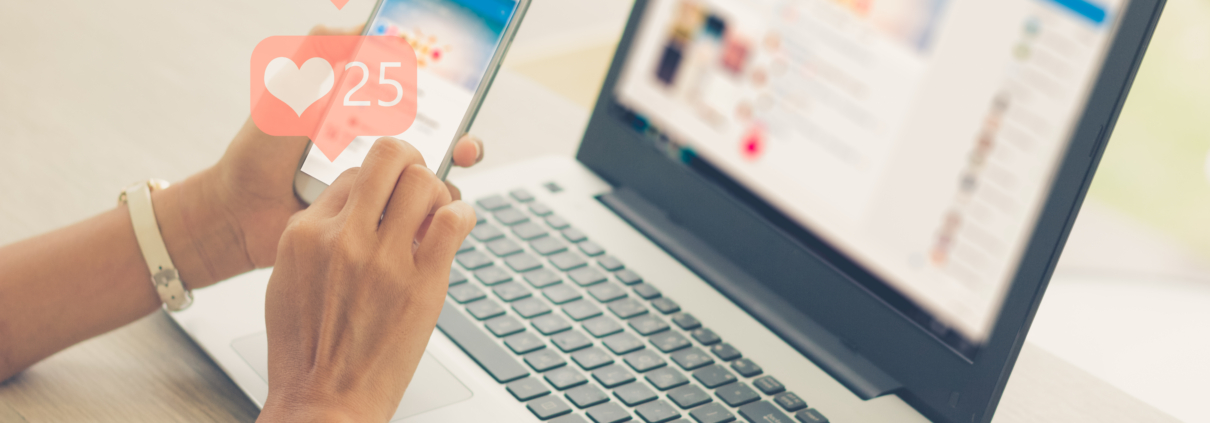Social Media and Self-Diagnosing
With the advent of social media, children and adolescents have greater access to a slew of information about mental health than ever before. A rising trend that parents may or may not be aware of is the phenomenon on which children and teens use information from social media, especially “influencers” on popular platforms such as Tik Tok and Instagram to self-diagnose mental health conditions.
There are many reasons why younger generations are becoming increasingly comfortable sharing sensitive information such as mental health on social media:
- Increased awareness and understanding: Social media can raise awareness about mental health conditions and encourage open conversations, reducing stigma and promoting help-seeking behavior.
- Finding support and community: Individuals can connect with others facing similar challenges, fostering a sense of belonging and reducing feelings of isolation.
- Sharing personal experiences: Sharing personal stories can provide validation and understanding for others, potentially helping them feel less alone and more empowered to seek help.
- Access to resources: Social media can offer valuable resources like mental health hotlines, support groups, and self-help tools, although professional guidance is still crucial.
However, parents and caregivers should also be aware of the risks that come with sharing private health information publicly on the internet, especially when it comes to self-diagnosing:
- Inaccurate diagnosis: Social media information is often incomplete, biased, or inaccurate. Misinterpreting symptoms or relying on personal anecdotes can lead to misdiagnosis, causing unnecessary anxiety or delaying seeking professional help.
- Oversimplification: Mental health conditions are nuanced and multifaceted. Social media often presents simplified versions that don’t capture the full picture, potentially leading to misunderstanding and misapplication of information.
- Echo chambers and confirmation bias: Algorithms can personalize content, creating echo chambers where users encounter information that reinforces their existing beliefs, potentially fueling anxiety and negativity.
- Stigmatization and self-fulfilling prophecies: Labeling oneself with a mental health condition can lead to self-fulfilling prophecies and negative self-perception, further impacting mental well-being.
- Lack of qualified guidance: Social media lacks the expertise and nuanced understanding of a qualified mental health professional, who can provide personalized assessment, support, and treatment plans.
- Confirmation bias: Users may seek out information that confirms their existing suspicions, ignoring symptoms that don’t fit their preconceived notions.
- Delay in seeking professional help: Self-diagnosis can delay seeking professional evaluation and proper treatment, potentially worsening symptoms.
- Harmful communities: Some online communities may focus on negativity and unhealthy coping mechanisms, further impacting mental well-being.
While social media can be a valuable resource for information and support, it’s important to approach it with caution and avoid self-diagnosis. If you’re concerned about your mental health, it’s crucial to seek professional help from a qualified therapist, psychologist, or psychiatrist. They can provide accurate diagnosis, personalized treatment plans, and ongoing support.
Recommendations on what to do instead:
- Seek professional help for diagnosis and treatment: A qualified mental health professional can provide an accurate diagnosis and develop an appropriate treatment plan based on your individual needs.
- Critically evaluate information: Be cautious about information found on social media and consult reliable sources, such as websites of mental health organizations.
- Use social media for support and connection: Join online communities that offer positive and supportive environments for people with mental health challenges.
- Focus on self-care and healthy coping mechanisms: Practice healthy behaviors that improve your mental well-being, such as regular exercise, healthy eating, and relaxation techniques.
Here are some additional resources that you may find helpful:
- National Alliance on Mental Illness (NAMI): https://www.nami.org/
- MentalHealth.gov: https://mentalhealthtx.org/
- The Jed Foundation: https://jedfoundation.org/
- Crisis Text Line: Text HOME to 741741
Remember, taking care of your mental health is important, and seeking professional help is never a sign of weakness.




